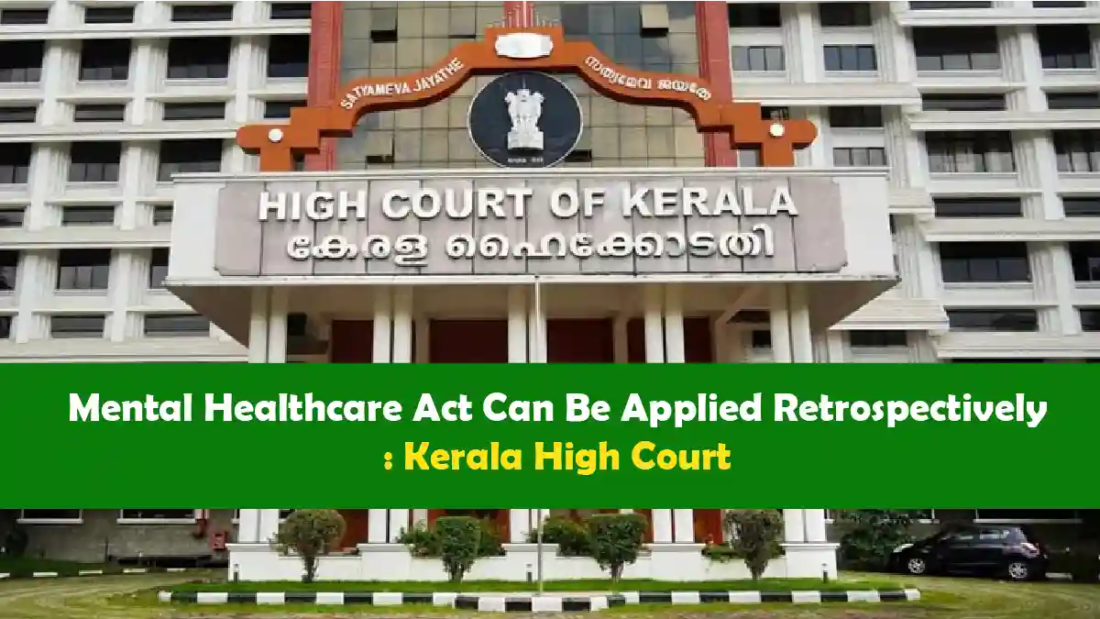Introduction
The Kerala High Court recently laid down that the Mental Healthcare Act, 2017 (MHA), which removed the criminality in attempting suicide, has retroactive operation. This groundbreaking verdict resulted to dismissal of criminal case against the woman who took an attempt to commit suicide over mental torment in the year 2016.
Facts of the Case
The petitioner, the wife of a former MLA, was subjected to severe mental harassment when selected unauthorized persons provided her intimate edited telephone recordings to the media during her husband’s electoral campaign. These recordings were defamatory and a bother to her reputation besides having an impact on the electoral chances of her husband. Overwrought, she tried to commit suicide by taking a bunch of sleeping tablets in 2016 June. After the bid, she was tried for an attempt to commit suicide under Section 309 of IPC, which was illegal then.
Petitioner’s Argument
The petitioner’s lawyer contended that it would be unconstitutional to prosecute her under Section 309 IPC due to her rights under the MHA that was enacted after her suicide bid. The petitioner sought for Section 115 of the MHA that has removed the criminality of attempted suicide and further requires the person to be taken for care treatment and rehabilitation, therefore she should be given the protection of the law from the time it was enacted.
Respondent’s Argument
Senior Public Prosecutor considered that since the petitioner attempted suicide in 2016 before the MHA enactment, the law cannot apply a decriminalizing provision. The persecution continued that at the time of the offense, the petitioner should be held to the prevailing law Section 309 IPC of the Indian Penal Code, which prohibited suicide attempts.
Court’s Observations
Hon’ble Court reiterated the fact that MHA is a progressive law, and he wanted the formation of an MHA to be closed out by contending that it is a beneficial law that seeks to assist persons experiencing mental health difficulties. The Court made some references to previous cases among which was the Supreme Court case Rattan Lal v. The State proponent of the concept of
giving retrospective operation to beneficial laws. Sc also considered its decision in the case of State of Punjab vs. Gian Chand and others, AIR 1965 SC 444. The Court also observed thus:- “Where a law is enacted for the benefit of a community as a whole, even in the absence of such provision, the statute may be held to be retrospective in nature”.
The Court also faulted the State for continuing prosecution of the petitioner when MHA acting under section 115 (2) should be providing care and rehabilitation for the petitioner when the suicide attempt was made under severe stress.
Court’s Judgment
Subsequently, the Kerala High Court dismissed the criminal proceeding against the petitioner arguing that it would be against the protective purpose of the MHA if the petitioner was prosecuted under Section 309 IPC. The Court noted that there were strong and compelling reasons under LAW to judge the provisions of the MHA in a retrospectively because the law aims to help people with mental health issues.
– Credits: By Anaida Khan Pursuing 5th year of BALLB (Hons.) from Dharmashashtra National Law University, Jabalpur
 Cart is empty
Cart is empty 


